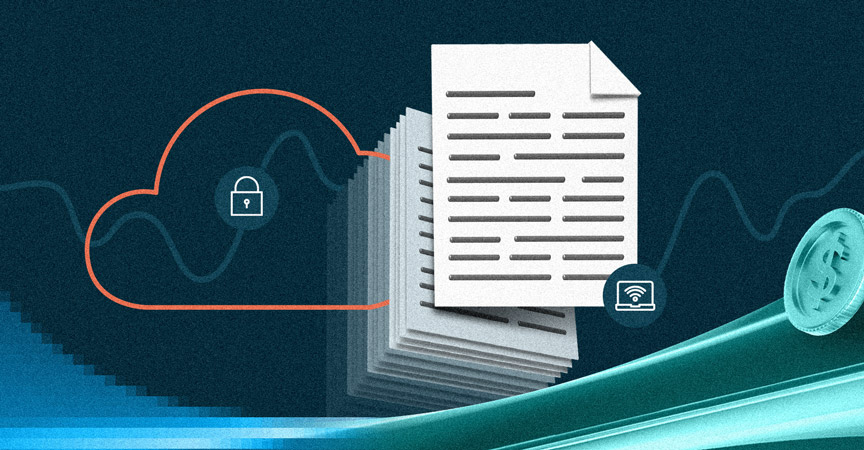Having stable finances is a principle for all businesses, but what can you do, when your clients are late with their payments too often? Instead of fighting with them and being stressed all the time, you can solve the problem once and for all. Thanks to invoice factoring services, you can ensure that your invoices are always paid on time. Now, thanks to some smart FinTech solutions, you don’t even have to do much to make it happen. Let’s find out how online factoring works and which vendors are the best for your business.

Table of contents
- What is online invoice factoring?
- Reverse factoring
- Benefits of factoring
- Invoice discounting
- How much invoice factoring costs
- Digital future of online factoring
Back to basics – what online invoice factoring is
The concept of improving the cashflow by always getting paid on time thanks to a third party that provides a credit controlled service to recover money owed is not new. It has many names, the most commonly used being factoring, accounts receivable factoring or debt factoring. Invoice factoring companies let you release cash from your unpaid invoices as soon as the due date comes – always. Let’s review the typical process that takes place here:
- You provide services or goods to your clients.
- You send them an invoice made payable to your factoring company and you send a copy to the factoring company.
- The factoring partner pays the invoice deducted by a small fee (they need to make money too.)
- The client pays to the factoring company.
Now, what is online factoring? Well, essentially the same thing, but realised through an online platform or even automatically, thanks to a smart API integration with the accounting system in a company.
Reverse factoring – a better option for SMEs
Reverse factoring lets sellers and service providers sell their receivables relating to a particular buyer to a bank at a discount as soon as they are approved by the buyer. Then, the buyer pays at the normal invoice/draft due date, however the seller receives the payment earlier. The bank relies on the credit score of the buyer in this case, which makes it a more beneficial variant for SMEs.
Many benefits of factoring
There is much more to factoring than just good cash flow. The main benefit is quite obvious – 100% protection against the buyer’s inability to pay. But besides it, factoring gives you enormous financial flexibility and grants a better credit score (because factoring is not a loan). With cash in hand, you are less likely to need credit, though and you can capitalise on new opportunities, as well as focus on new sales and marketing initiatives. You are also less likely to have a negative balance sheet, so you can pay your bills and invoices on time. As a bonus, many factoring companies offer inexpensive services such as bookkeeping to their clients.
One interesting feat of using factoring is that you don’t need to hurry your clients to pay, so you can maintain a healthy relationship with them. After all, they may struggle financially or have a bad year, too.
Invoice discounting – an alternative to factoring
Invoice discounting seems to be similar to factoring and that’s true. However, there are some notable differences between these services and in some cases it’s better to use discounting. First of all, it’s a loan based service, so it affects your credit rating. Also, it doesn’t protect against fraudulent buyers in 100%, because the money lent must be repaid. Generally speaking, invoice discounting is a riskier proposition for lenders than factoring. As a result, invoice discounting is mostly used by big companies with a steady and reliable customer base. Conversely, this is not a good form of financing for low-margin businesses, since the interest on the debt may eliminate any prospect of earning a profit.
How much invoice factoring costs
Obviously, factoring is not a service that comes for free. It may not be expensive, however be wary that there are four main factors that affect the price.
- Factoring Cost – they generally comprise the base interest rate plus the percentage set by the lender, usually 2-3%.
- Administration Fees – optional, but companies charge an additional administration fee.
- Termination Fees – apply when you want to end your partnership with the factore before the contract’s due date.
- Credit Insurance – also optional, but often required, when the invoice comes from a very unreliable customer.
Digital future of online factoring
While the core concept of factoring is ancient, nowadays we all operate online. The latest innovation in factoring and, in fact, the factor that changes the game are cloud-based technologies. But, besides benefits for the service users, such as simple and reliable integrations with ERP systems, the innovations change the way factoring services providers operate.
First of all, cloud based factoring software lets them scale dynamically and adjust their organisations for the changing work loads, which is very important in these turbulent times. Secondly, introducing new services and variants is much easier done in systems that are easily upgradable, so time-to-market time can be minimised. Basically, all of the benefits of modern cloud computing.
See you soon, when we compare the most popular online factoring companies in the UK!